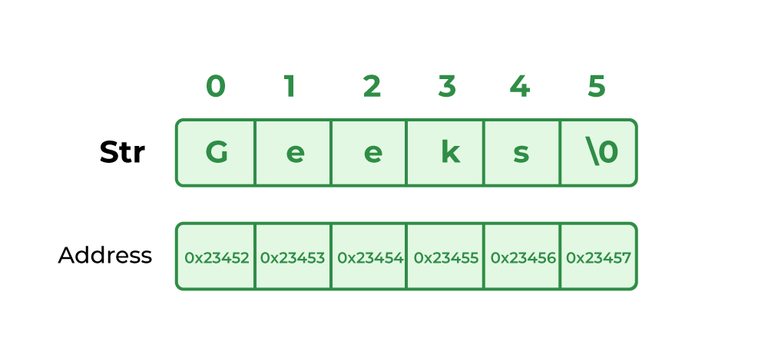Unalterable Strings: A Secret Component in Ensuring Information Uniformity and Reliability
In the world of information administration, the significance of unalterable strings can not be overemphasized. These imperishable series of characters play a crucial function in supporting the stability and precision of information within systems. By maintaining a state of immutability, data uniformity is made sure, fostering a foundation of reliability upon which essential processes rely. The idea of unalterable strings goes beyond simple technicality; it is a linchpin in the complicated internet of data administration. As we explore the benefits, application approaches, and useful applications of immutable strings, a clearer photo emerges of their essential nature in safeguarding the digital landscape.
The Concept of Immutable Strings
Immutable strings, an essential concept in shows, describe strings that can not be changed when they are produced. Essentially, once a string worth is appointed, any type of operation that appears to modify the string actually produces a new string. This immutability ensures data uniformity and integrity in applications, as it stops unanticipated adjustments to the original information.
Advantages in Information Uniformity

Data uniformity is important in different aspects of software development, including data source management, multi-threaded environments, and dispersed systems (Why are strings immutable in Java?). Unalterable strings contribute significantly to attaining this consistency by protecting against information corruption due to simultaneous access. In circumstances where several procedures or threads connect with the exact same data concurrently, immutable strings act as a safeguard against race problems and synchronization problems
Additionally, the immutability of strings streamlines debugging and testing procedures. With unalterable strings, designers can trust that when a string is established, it will certainly stay unchanged, making it much easier to trace the resource of errors and ensuring that examination instances create consistent outcomes. This reliability in data taking care of eventually leads to more durable and stable applications.

Implementing Unalterable Strings
Making certain the immutability of strings requires a thoughtful technique to their implementation in software advancement. One vital method is to develop string classes in a manner that avoids modifications as soon as a string object is produced. By making strings immutable, programmers can enhance information consistency and dependability in their applications.
To execute immutable strings properly, designers ought to prefer producing brand-new string items instead of changing existing ones. This method makes certain that as soon as a string is designated a worth, it can not be transformed. In addition, any type of procedure that shows up to modify the string ought to develop a new string with the preferred adjustments rather of modifying the original.
Furthermore, utilizing immutable strings can streamline concurrency monitoring in multi-threaded settings. Considering that unalterable strings can not be changed after production, they can be securely shared amongst multiple threads without the danger of data corruption.
Function in Integrity Assurance
In software program development, the usage of unalterable strings plays an essential function in making sure the integrity of data operations. Immutable strings, once created, can not be changed, ensuring that the data they represent remains regular throughout the application's implementation. This immutability residential or commercial property supplies a level of assurance that the data being processed will not be accidentally changed, leading to unexpected end results or mistakes in the system.
By including immutable strings right into software design, developers can improve the integrity of their applications by minimizing the risks related to mutable information - Why are strings immutable in Java?. Unalterable strings aid in protecting against data corruption or unplanned alterations, which can be specifically important when handling delicate info or when data integrity is vital
In addition, using unalterable strings simplifies simultaneous handling, as numerous threads can securely access and share string information without the danger of one thread changing the material while another reads it. This aspect contributes significantly to the total dependability of the software program system, ensuring regular and predictable behavior in information managing operations.
Applications and System Assimilation
The smooth combination of immutable strings into different applications and systems is pivotal for making sure robust data consistency and dependability across varied technical settings - Why are strings immutable in Java?. Immutable strings play an essential duty in boosting the stability of information exchanges and interactions within facility software application communities. By including immutable strings into applications, developers can mitigate the risks related to data meddling, unauthorized adjustments, and inadvertent changes, thereby strengthening the overall protection pose of the system
Unalterable strings can boost interoperability in between diverse systems by Click This Link supplying a continue reading this standardized format for information depiction, making it possible for more reliable information processing and exchange methods across interconnected systems. By adopting immutable strings in applications and system integration processes, companies can strengthen their information infrastructure and support the integrity and consistency of their information assets.
Verdict
Finally, immutable strings play a crucial role in maintaining information uniformity and dependability in different applications and system assimilations. By making sure that strings can not be transformed when developed, the honesty of data is protected, lowering the threat of disparities and errors. Implementing unalterable strings can substantially boost the dependability of systems, inevitably leading to more reputable and precise information handling.
